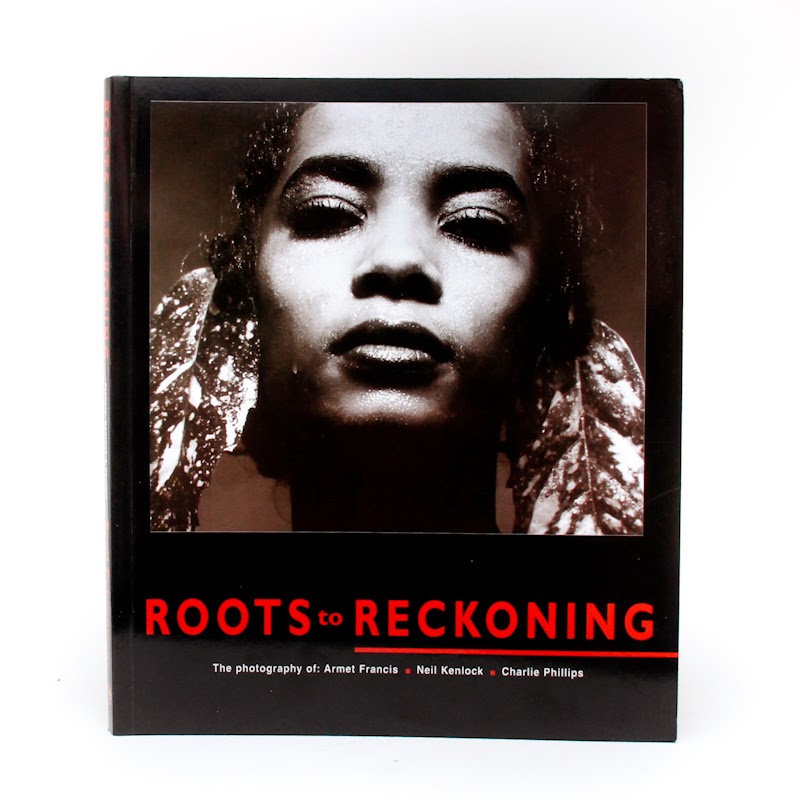
Afro-Caribbeans in UK: Roots to Reckoning Photo Archive at the Museum of London
Studio portrait, London 1968
Book cover photo by Armet Francis
Last week I read an essay by the Afro-Caribbean/British cultural theorist Stuart Hall titled “Cultural Identity and Diaspora” (published as a chapter in the book Identity: Community, Culture, Difference, London: Lawrence & Wishart, 1990, pp. 223–237) whereby he mentions the work of Jamaican-born, UK resident photographer Armet Francis.
Regarding his thesis on “the experience of dispersal and fragmentation” that marks the history of Afro-Caribbean cultural identity, Hall says Francis’ work “is a testimony to the continuing creative power of this conception of identity within the emerging practices of [photographic] representation.”
Unfortunately (but not surprisingly) I’d never heard of Francis or his work and so a Google search brought me to discover this unique archive within which some of Francis’ work can be found. In 2009, the Museum of London acquired the Afro-Caribbean photographic archive named the “Roots to Reckoning archive” featuring 90 photographs of London’s black community in the 1960s – 80s by three leading Jamaican-born photographers, Armet Francis, Charlie Philips and Neil Kenlock.
 |
| Copyright Charlie Phillips Courtesy of the Museum of London |
You can buy a copy of the Roots to Reckoning photo book online and hear each photographer speak about their personal experiences via the Museum of London’s oral history collection online.
Armet Francis was born in Jamaica, relocating from his small mountain community to London at 10 years old. Passionate about photography, his hobby eventually blossomed into a full-time career. In his fashion spreads, documentaries and exhibitions, Armet has focused on just about every angle of black people living in Britain and his home country. In 1969 he embarked on his Black Triangle Project, returning to the Caribbean and photographing people of the African Diaspora.
Ronald “Charlie” Phillips is a Jamaican-born photographer and documenter of Black London. He is best known for his photographs of Notting Hill during the period of West Indian migration to London. He came to London in 1956 where his family lived among other West Indian immigrants in Notting Hill, at the time a poor area of the capital characterised by Rachmanism and racism.[1] Phillips began his photographic career when while still very young he was given a Kodak Brownie by a black American serviceman. He taught himself to use it and began to photograph life in Notting Hill.
Watch this 2013 video interview with Charlie Phillips (via FilmsnotDead) where he talks about his experience as a young, Black photographer growing up in the British 1960s and share nuggets of photo wisdom like this quote: “In 40 years time, most of the people who take digitalized images might regret some of the images they dispose of.”
 |
| Copyright Neil Kenlock Courtesy of the Museum of London |
Neil Kenlock, photographer and media professional has been living in London since he came to Britain from Jamaica in 1963, to join his parents. He was a professional photographer for the first twenty years of his working life specialising in the cultural lifestyles of Jamaicans living and visiting the UK. In the late 60s, he became the official photographer for the UK Black Panther Movement, documenting the rallies, racism and upheaval during the 1970s and early 1980s in London. See more of Kenlock’s photographs online in the Museum of London archives, including pics of mega celebrities Bob Marley and Muhammad Ali during their visits to the UK.
________________________________________________________________________________
Dodge & Burn is a blog dedicated to documenting a more inclusive history of photography and supporting the work of photographers of color with photographer interviews.
This blog is published by visual artist and writer, Qiana Mestrich. For regular updates on diversity in photography history, follow Qiana on Twitter @mestrich, Like the Dodge & Burn Blog page on Facebook or subscribe to Dodge & Burn by email.
You must be logged in to post a comment.

+ There are no comments
Add yours